Medical Studies > Summary > Summary C426 Washington University Paradigm Latest Updated 2021 Graded A+ (All)
Summary C426 Washington University Paradigm Latest Updated 2021 Graded A+
Document Content and Description Below
C426 Washington Paradigm Course of Action One – Follow Bashir’s Wishes The Principles of Beneficence and Non-maleficence • What is the patient’s medical problem? Is the problem acute? Chron... ic? Critical? Reversible? Emergent? Terminal? The patient is presenting with chronic obstructive pulmonary disease and adult-onset diabetes mellitus. Her condition is critical because she has sustained a heart attack. • Using this course of action, describe, in full sentences, necessary considerations via 1. beneficence Healthcare professionals are to do good by demonstrating kindness, showing compassion and helping their patients but if they follow Bashir’s requests, they are not helping Jamilah. 2. non-maleficence Healthcare professionals are to avoid causing harm to the patient. If they follow Bashir’s orders, they will be withholding care from Jamiliah which could end to her death. 3. autonomy Patient’s have a right to make their own decisions regarding their health. By following Bashir’s wishes, the doctor’s are ignoring Jamilah’s autonomy. • In what circumstances are medical treatments not indicated? Jamilah has been evaluated by a cardiologist and medical treatments have been indicated to help her. • What are the probabilities of success of various treatment options? Jamilah’s age does present additional potential issues surgeons may encounter during such procedures though. But if nothing is done like Bashir wishes, then his mother is likely to die in a few days. • In sum, how can this patient be benefited by medical and nursing care, and how can harm be avoided? If no treatment is given to Jamilah, she is likely to die in a few days. Bashir has said he only wants comfort care given to his mother. Harm could be avoided by not listening to Bashir and going ahead with the recommended procedures from the consulting cardiologist. PATIENT PREFERENCES • Has the patient been informed of benefits and risks, understood this information, and given consent? Patient has stated to the social worker she wants to live. It is not clear if the patient has been informed of benefits and risks or understands, but stating she wants to live is consent for treatment. • Is the patient mentally capable and legally competent, and is there evidence of incapacity? There is not evidence of incapacity. There is a language barrier. • If mentally capable, what preferences about treatment is the patient stating? Jamilah has stated she wants to live. • If incapacitated, has the patient expressed prior preferences? • Who is the appropriate surrogate to make decisions for the incapacitated patient? There is no appropriate surrogate to make decisions for Jamilah. • Is the patient unwilling or unable to cooperate with medical treatment? If so, why? The Principles of Beneficence, Non-maleficence, and Respect for Autonomy • What are the prospects, with or without treatment, for a return to normal life, and what physical, mental, and social deficits might the patient experience even if treatment succeeds? Bashir has told the doctors to withhold treatment and without treatment, Jamiliah is likely to die within a few days. • On what grounds can anyone judge that some quality of life would be undesirable for a patient who cannot make or express such a judgment? Patient has stated she wants to live. • Are there biases that might prejudice the provider’s evaluation of the patient’s quality of life? • Do quality-of-life assessments raise any questions regarding changes in treatment plans, such as forgoing life-sustaining treatment? There is not enough information to answer this question. Bashir told the medical staff to provide comfort care and not do any procedures on his mother. • What are plans and rationale to forgo life-sustaining treatment? The doctors are going off of Bashir telling them to forgo life-sustaining treatment. • What is the legal and ethical status of suicide? The Principles of Justice and Fairness • Are there professional, interprofessional, or business interests that might create conflicts of interest in the clinical treatment of patients? There is a conflict because Bashir requested comfort care and a DNR order. The social worker is in conflict with the cardiologist because Jamilah has stated she wanted to live. The doctor has delayed care to Jamilah because of Bashir’s requests. • Are there parties other than clinicians and patients, such as family members, who have an interest in clinical decisions? Bashir has taken over the role of dictating what he wants the doctors to do regarding his mother’s health. • What are the limits imposed on patient confidentiality by the legitimate interests of third parties? • Are there financial factors that create conflicts of interest in clinical decisions? The scenario does not state there are any financial factors creating conflicts of interest in clinical decisions. • Are there problems of allocation of scarce health resources that might affect clinical decisions? • Are there religious issues that might affect clinical decisions? The patient is Turkish and the males are the patriarchs of the family and appear to be used to making decisions for their families. The doctors have listened to Bashir and have delayed treatment for now. • What are the legal issues that might affect clinical decisions? A lawsuit for not providing treatment to Jamilah per wishes of Bashir who does not have authority to make decisions for his mother. • Are there considerations of clinical research and education that might affect clinical decisions? • Are there issues of public health and safety that affect clinical decisions? • Are there conflicts of interest within institutions or organizations (e.g. hospitals) that may affect clinical decisions and patient welfare? There is only one hospital involved in this scenario. The extended care facility reported Jamilah had severe chronic obstructive pulmonary disease and adult-onset diabetes mellitus. Course of Action Two - Refuse to Follow Bashir’s Wishes • What is the patient’s medical problem? Is the problem acute? Chronic? Critical? Reversible? Emergent? Terminal? The patient is presenting with chronic obstructive pulmonary disease and adult-onset diabetes mellitus. Her condition is critical because she has sustained a heart attack. • Using this course of action, describe, in full sentences, necessary considerations via 1. beneficence Healthcare professionals are to do good by demonstrating kindness, showing compassion and helping their patients. The doctors could help Jamilah more by refusing to listen to her son, getting a translator to explain the recommended procedures, and following through with helping bring Jamilah back to health. 2. non-maleficence Healthcare professionals are to avoid causing harm to Jamilah. Jamilah’s condition could be improved from the recommended procedures if the doctor’s act quickly. 3. autonomy Patient’s have a right to make their own decisions regarding their health. Jamilah has stated she wants to live so the doctors should go ahead with the recommended course of action from the consulting cardiologist and give Jamilah a chance to live. • In what circumstances are medical treatments not indicated? • In sum, how can this patient be benefited by medical and nursing care, and how can harm be avoided? Jamilah would benefit from the doctors going ahead with the recommended procedures from the consulting cardiologist. The Principle of Respect for Autonomy • Has the patient been informed of benefits and risks, understood this information, and given consent? It is not clear if Jamilah has been informed or understands but she gave consent by asking for help and stating she wants to live. • Is the patient mentally capable and legally competent, and is there evidence of incapacity? There is evidence of a language barrier but that is all. There is no evidence of incapacity. • If incapacitated, has the patient expressed prior preferences? • Who is the appropriate surrogate to make decisions for [Show More]
Last updated: 1 year ago
Preview 1 out of 8 pages
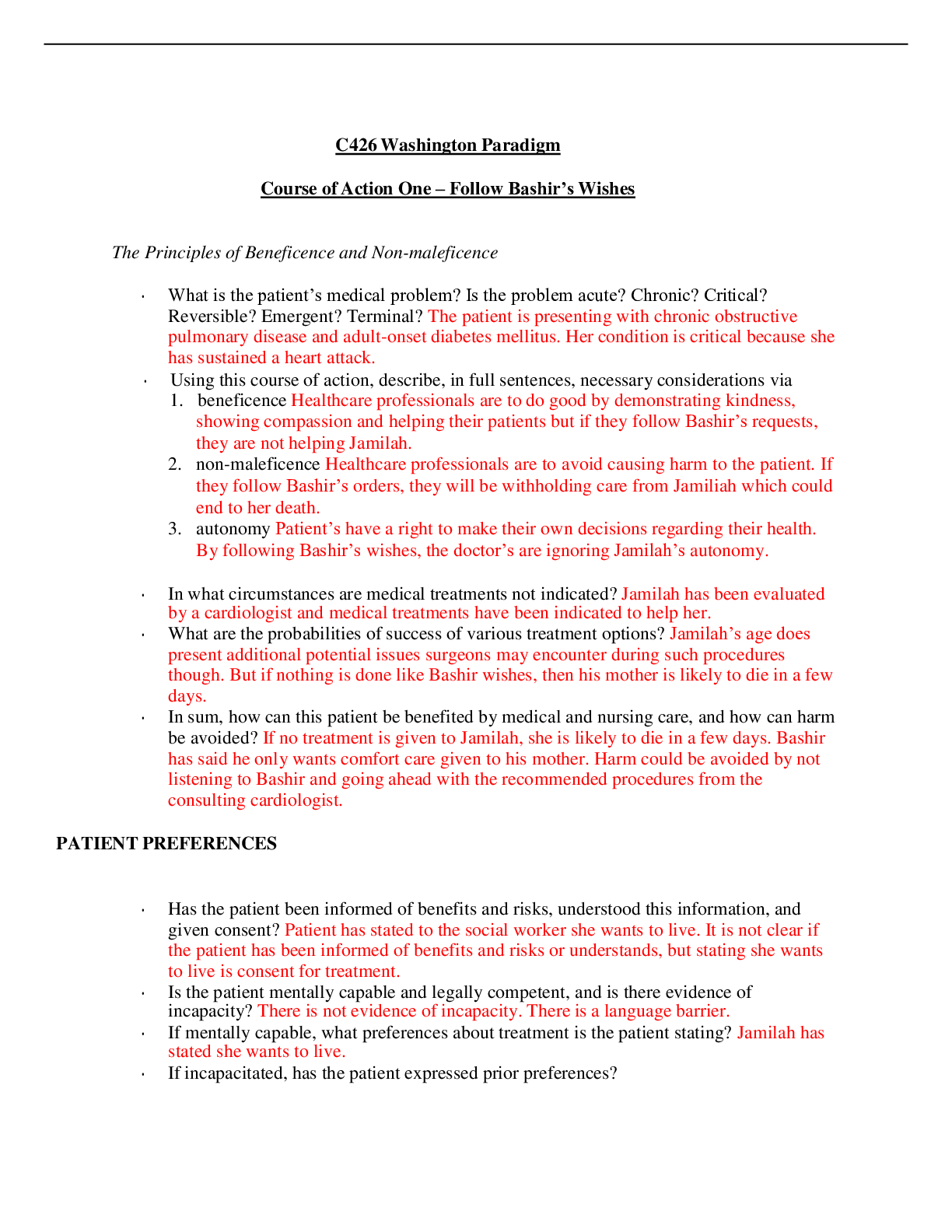
Reviews( 0 )
Document information
Connected school, study & course
About the document
Uploaded On
Sep 13, 2021
Number of pages
8
Written in
Additional information
This document has been written for:
Uploaded
Sep 13, 2021
Downloads
0
Views
70

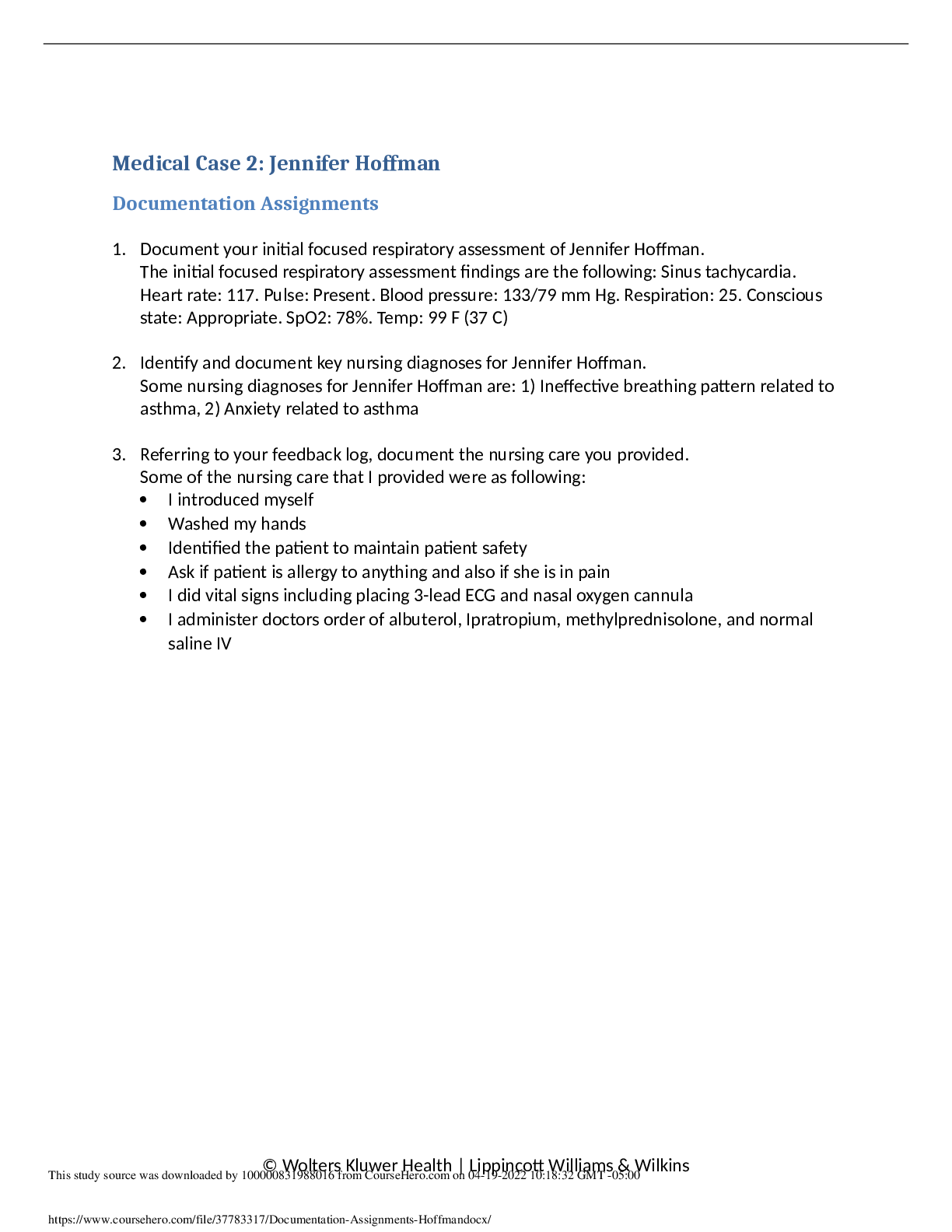


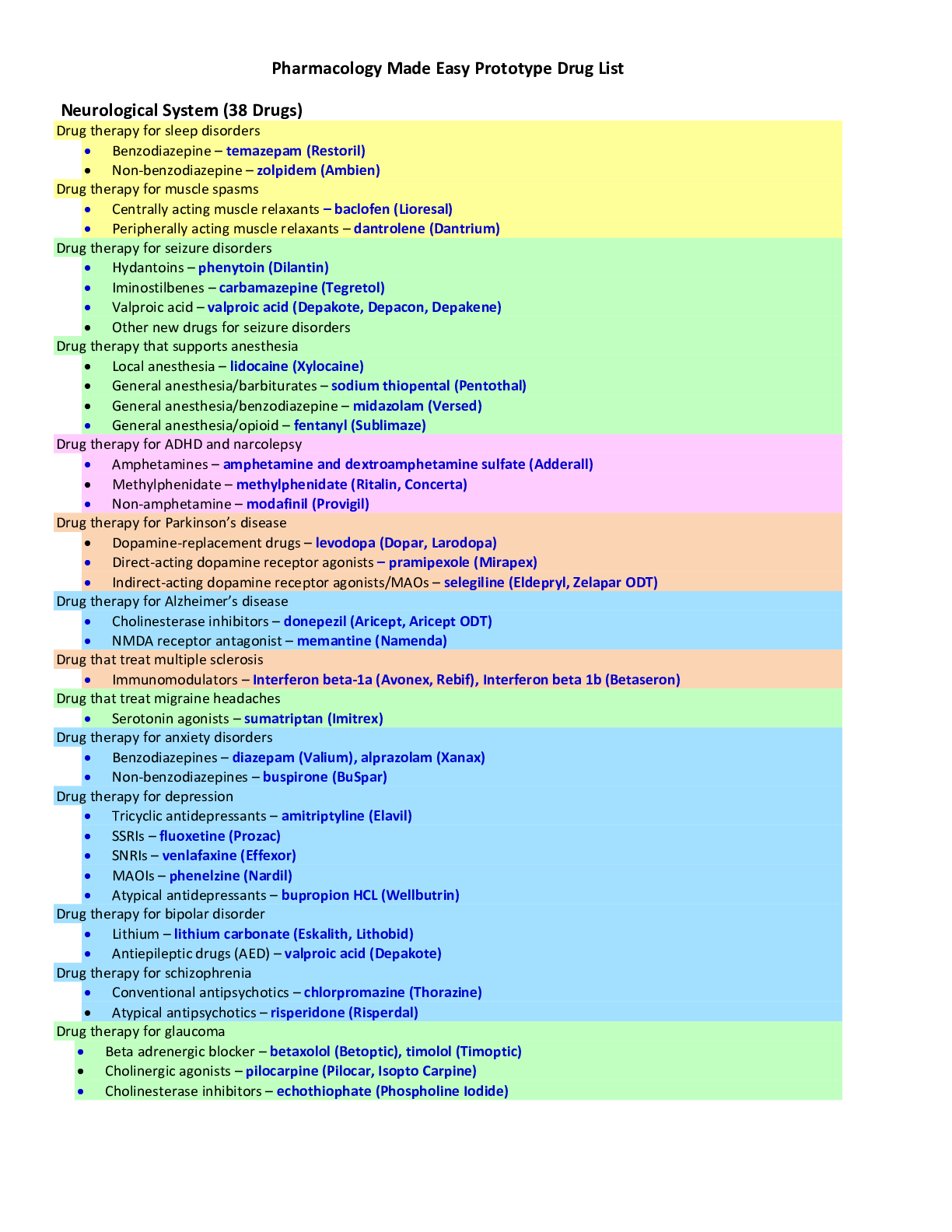

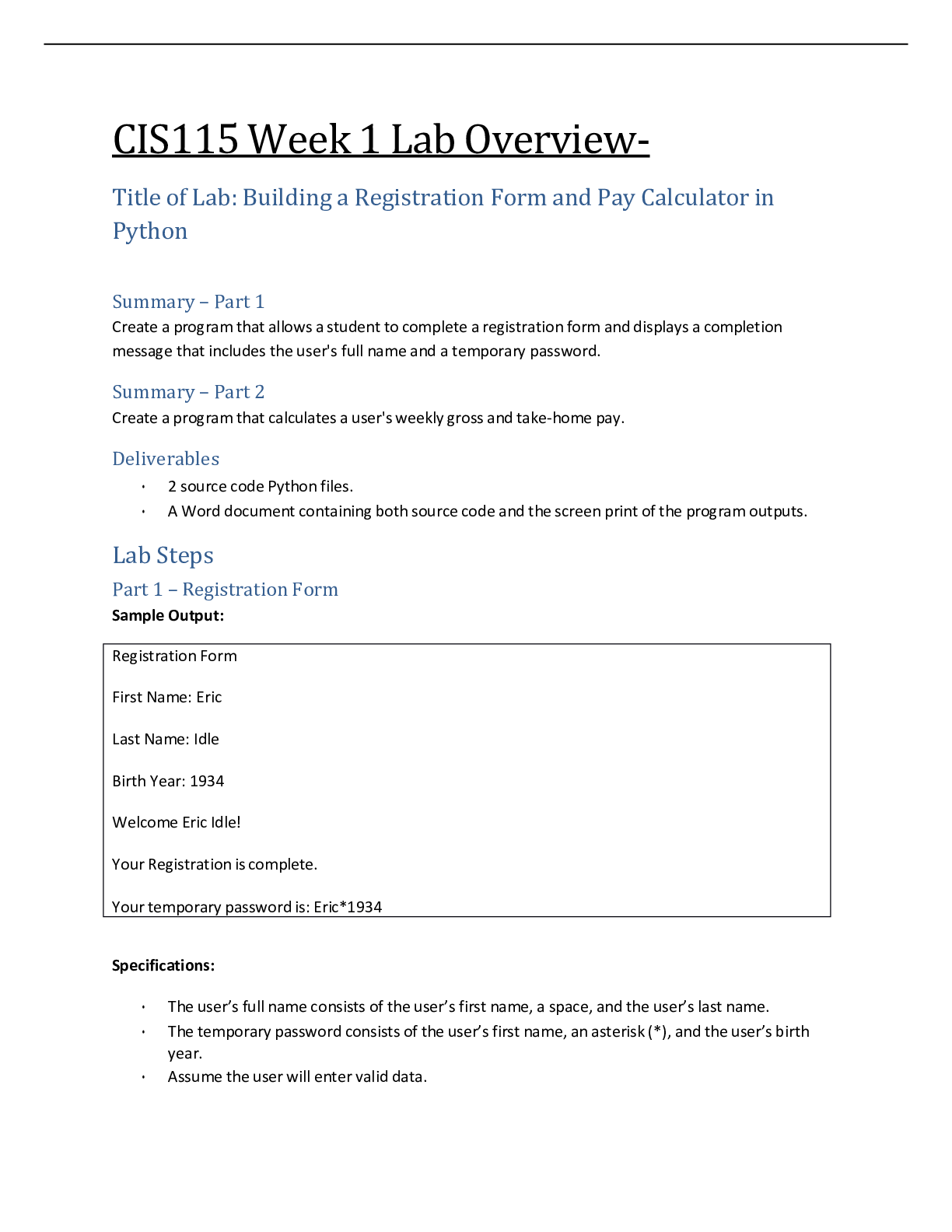
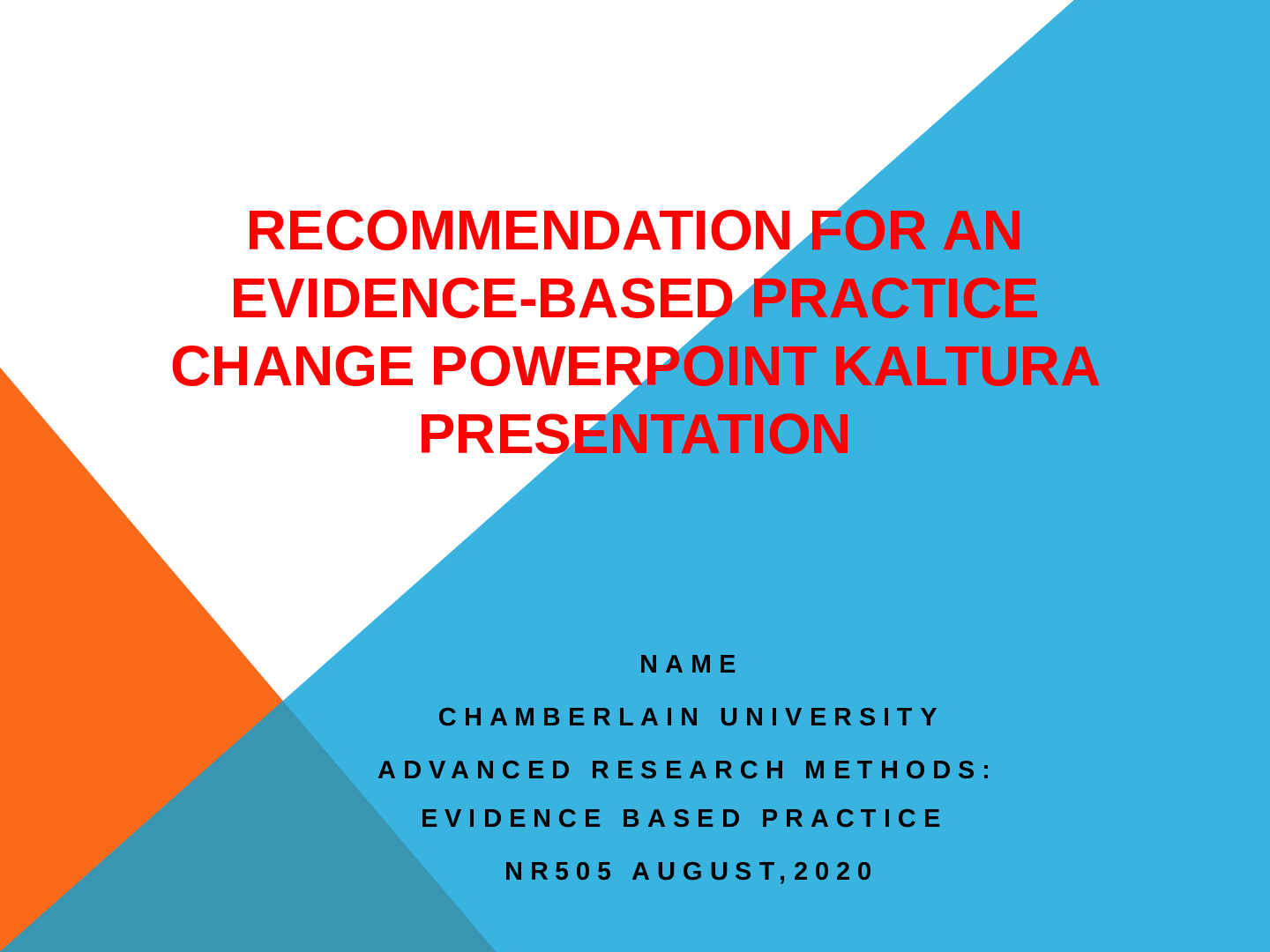
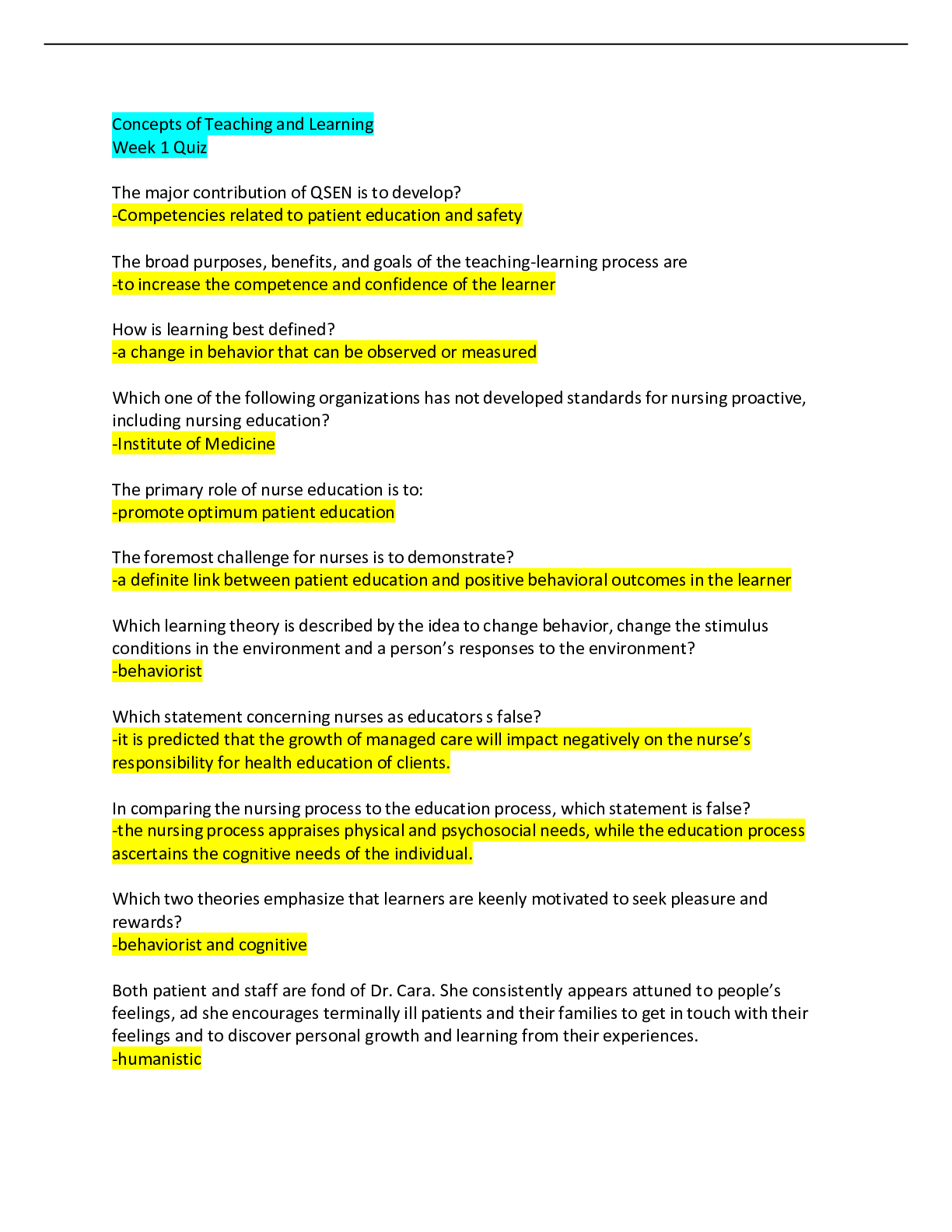


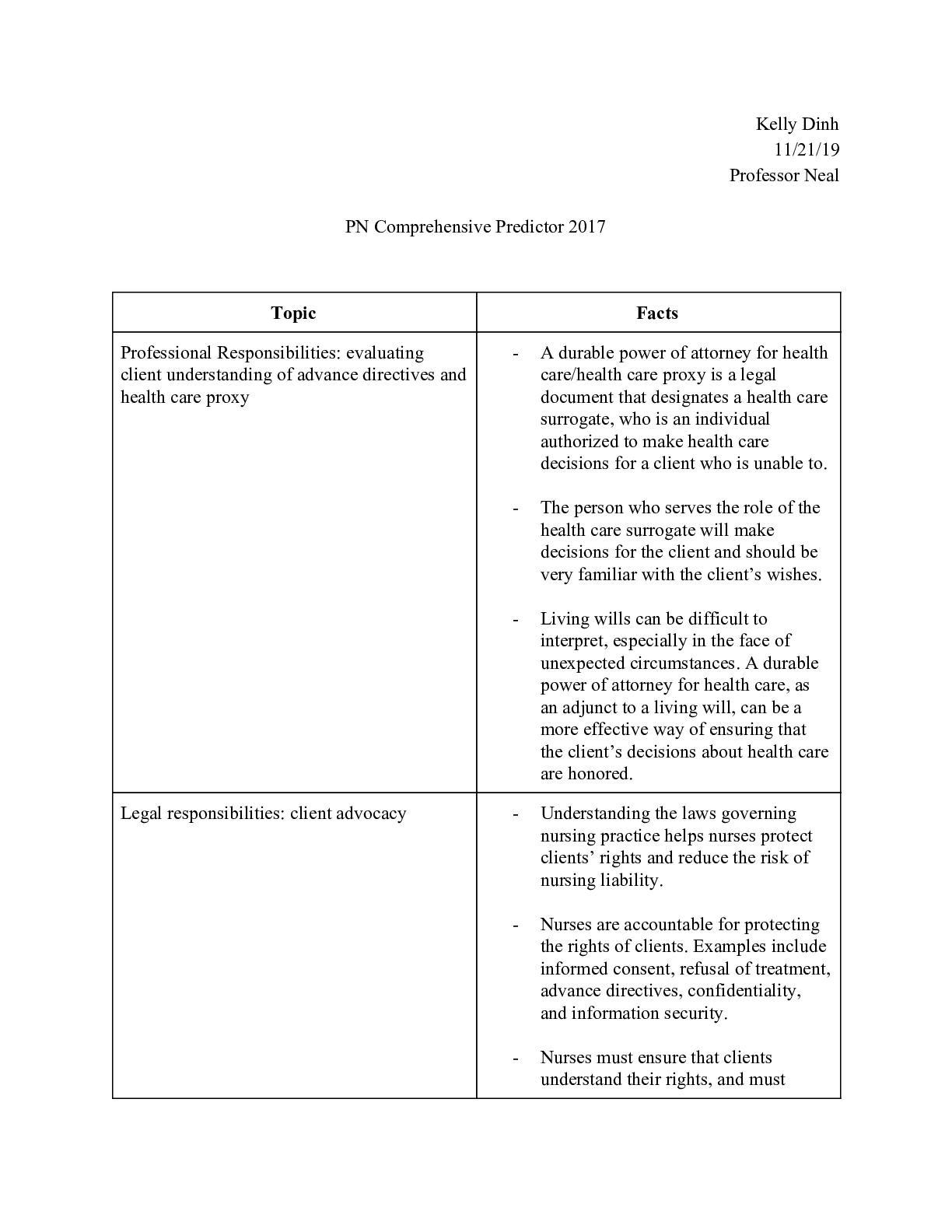

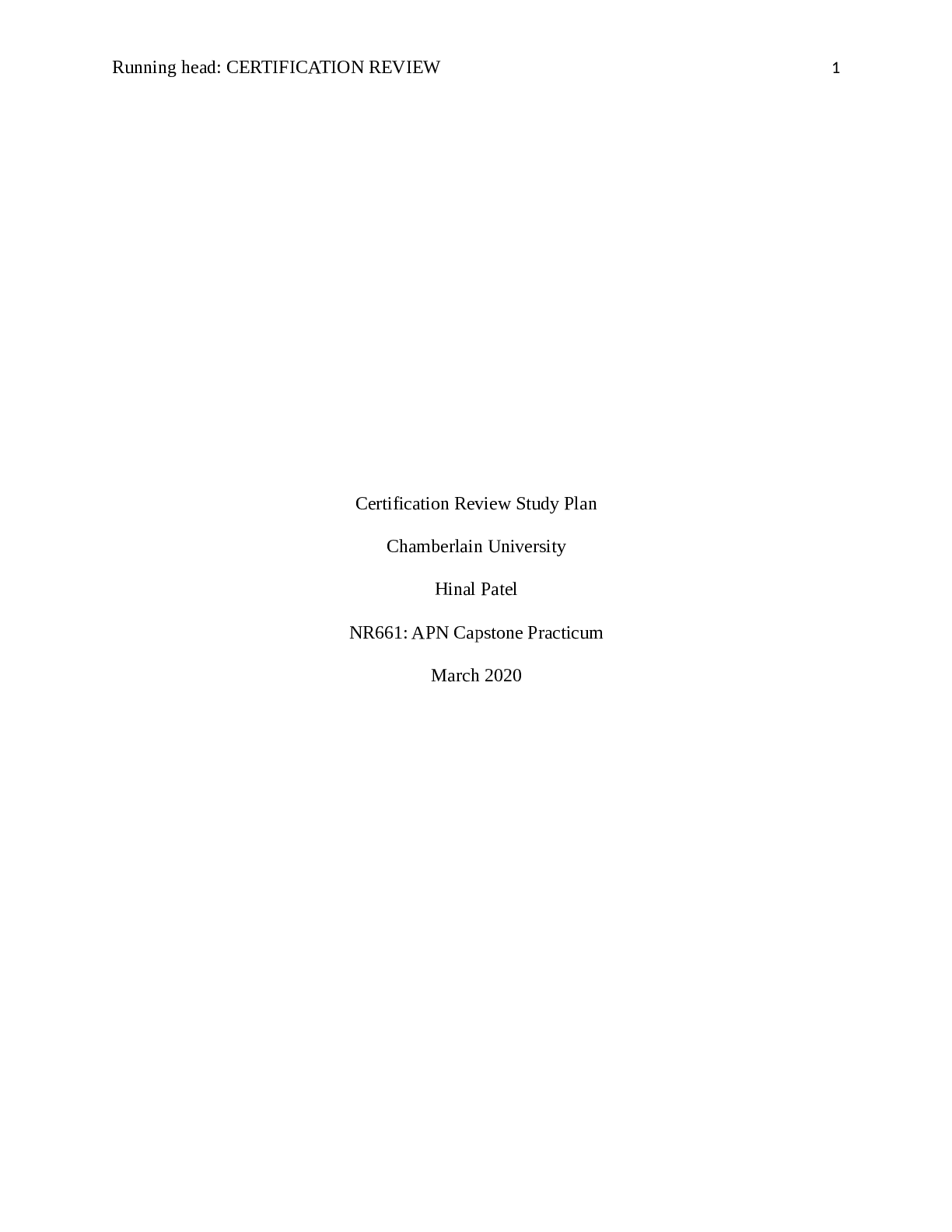

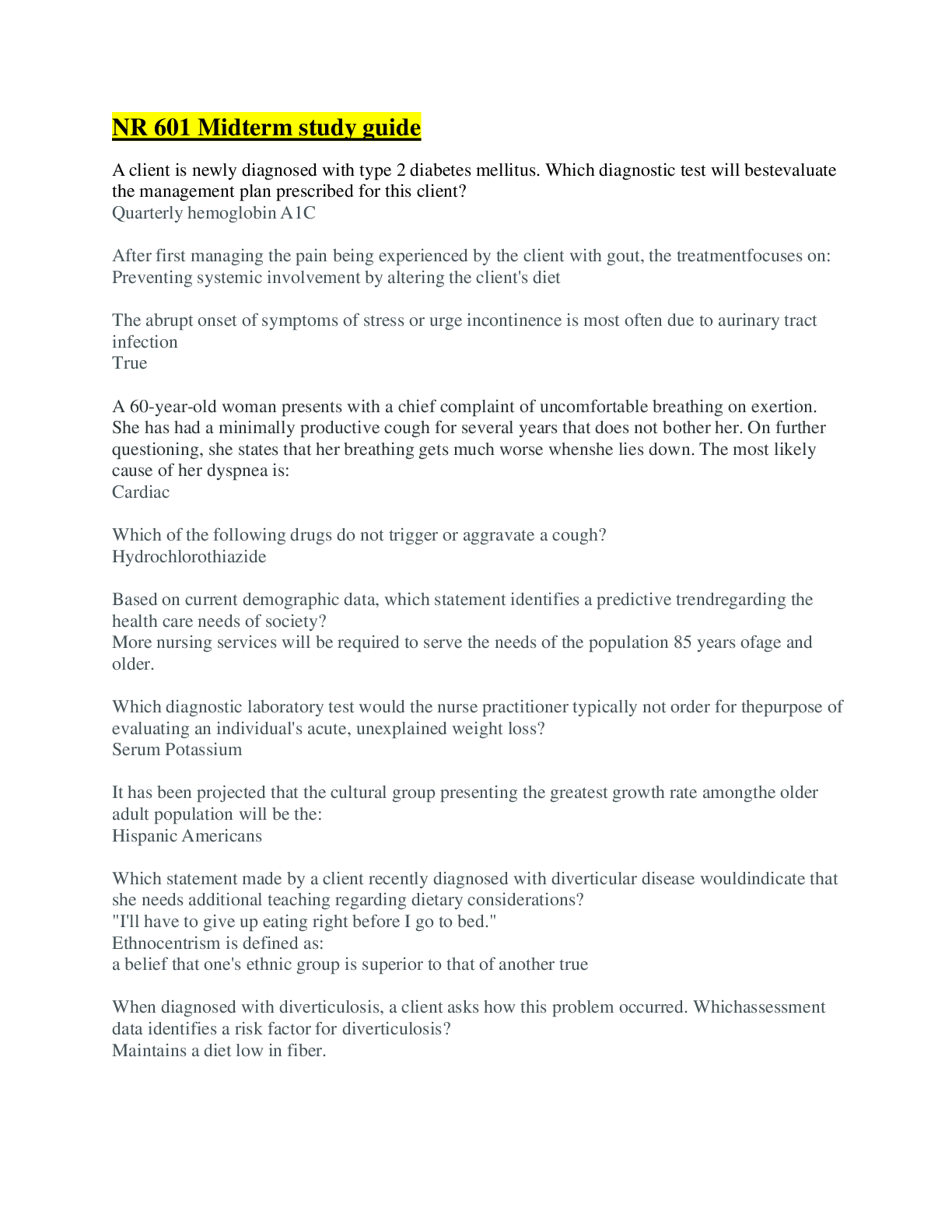

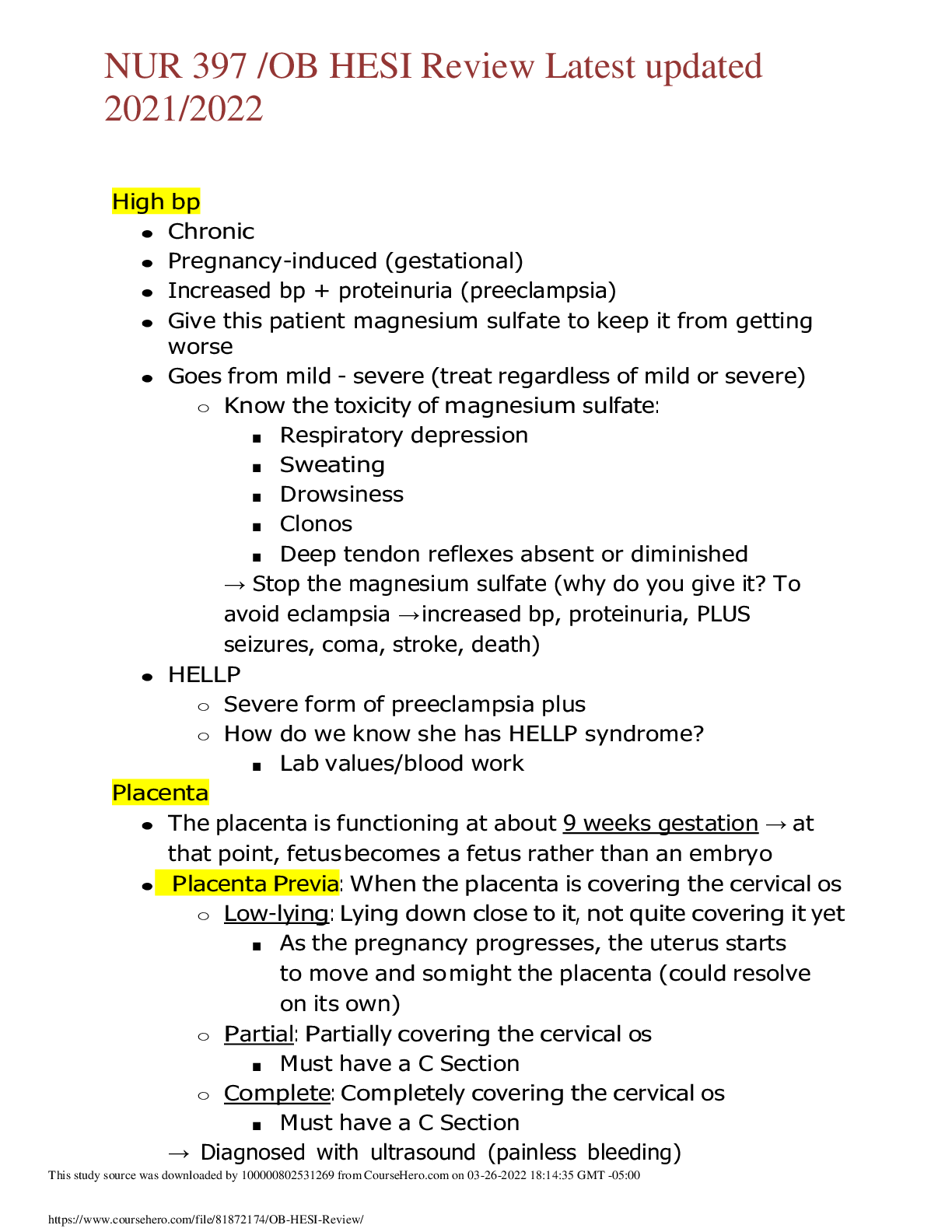
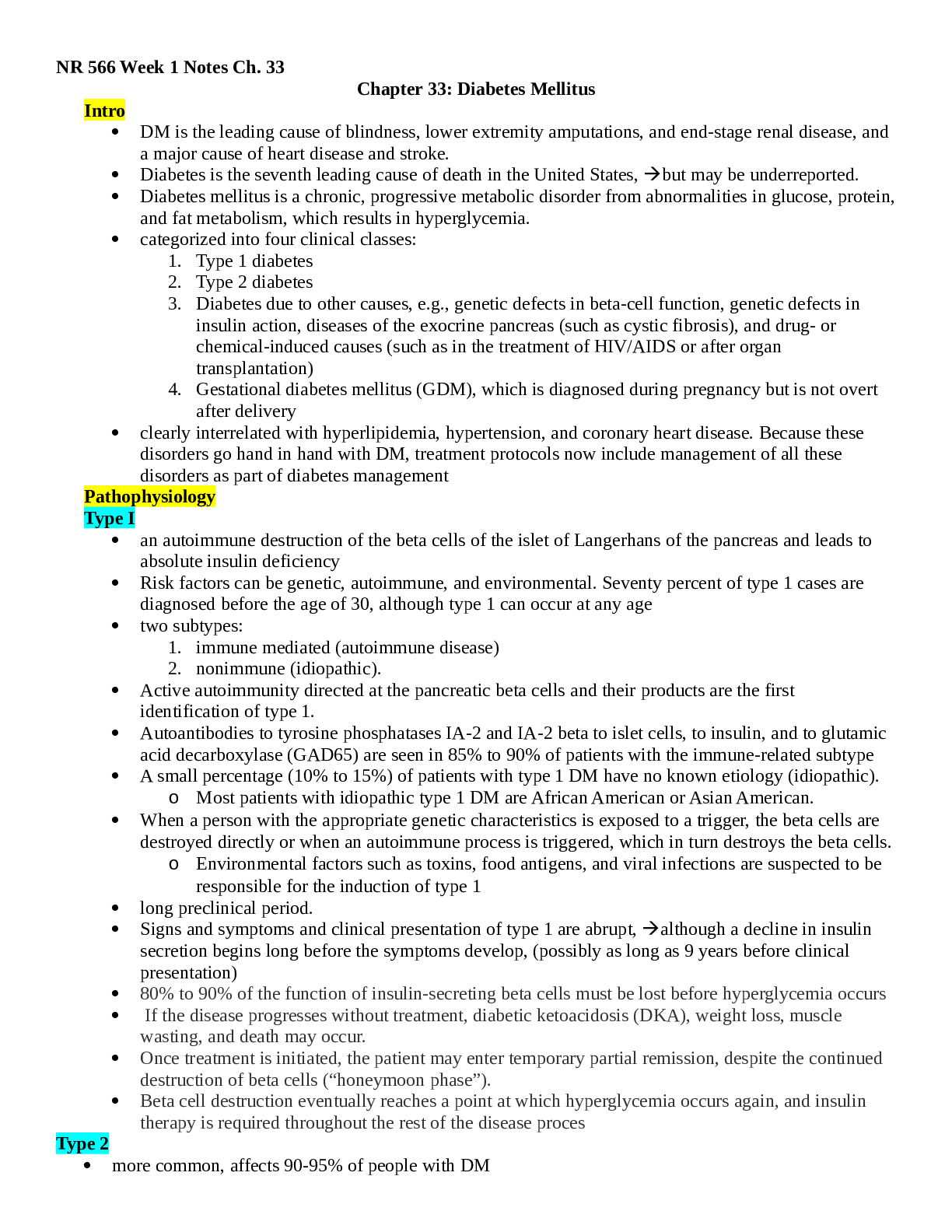
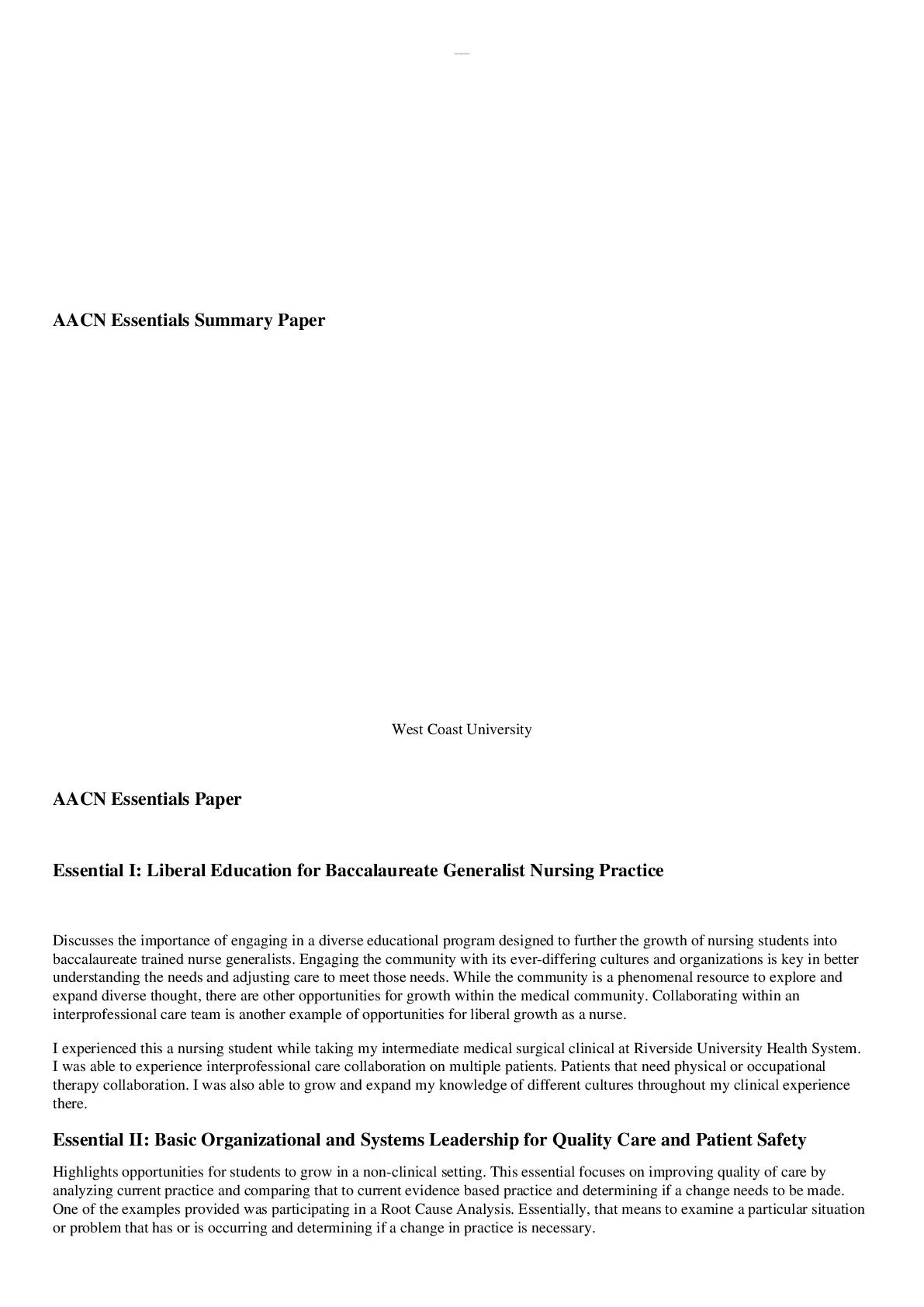
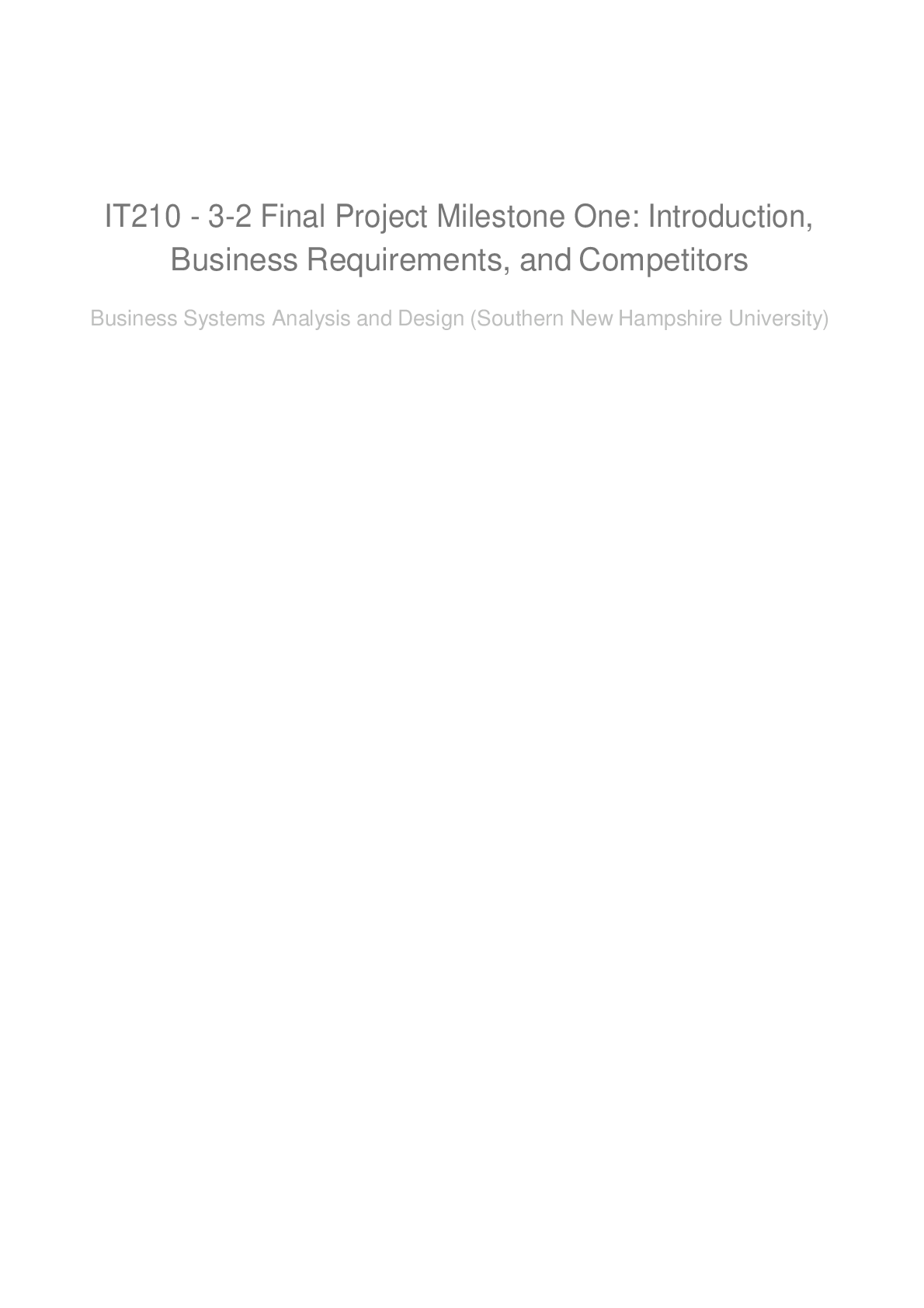


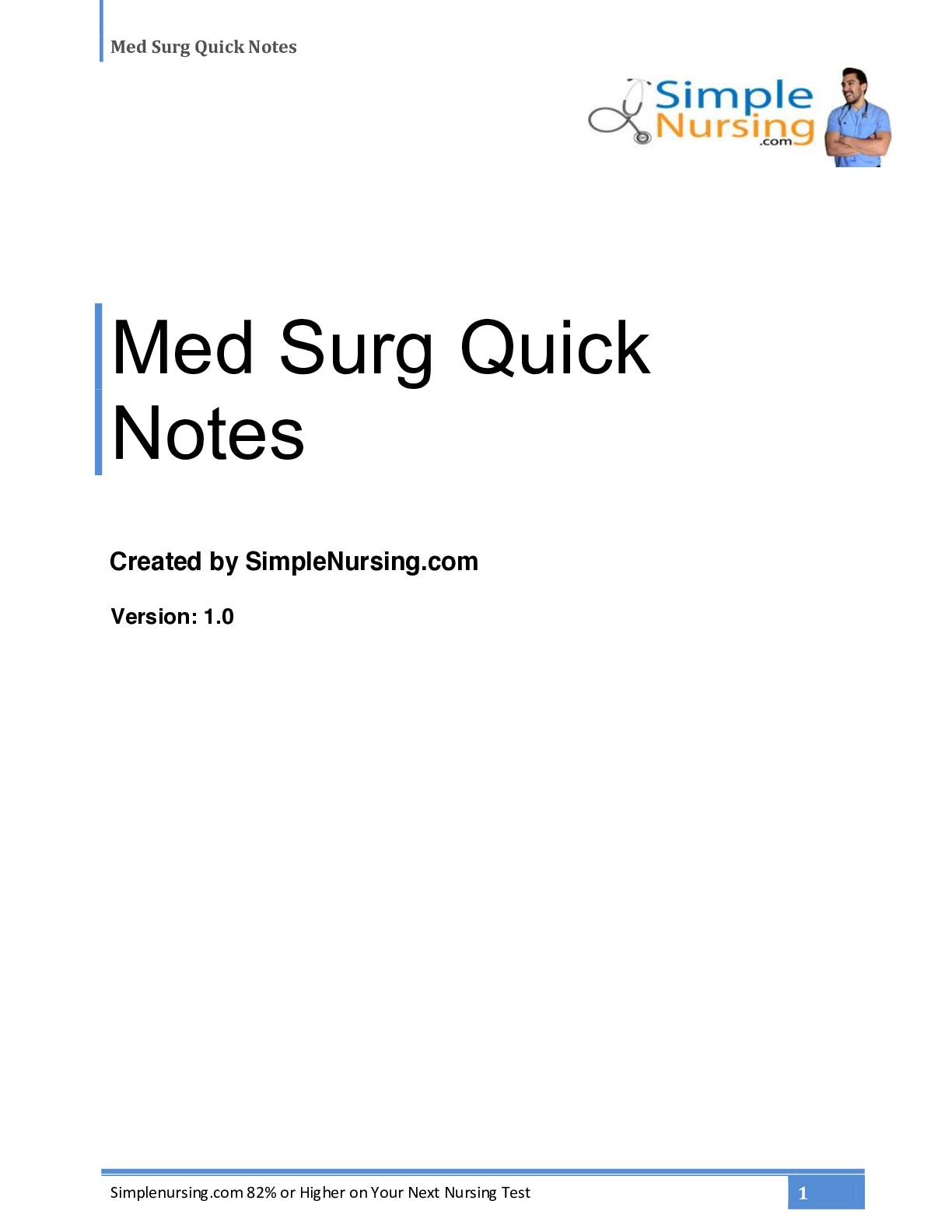
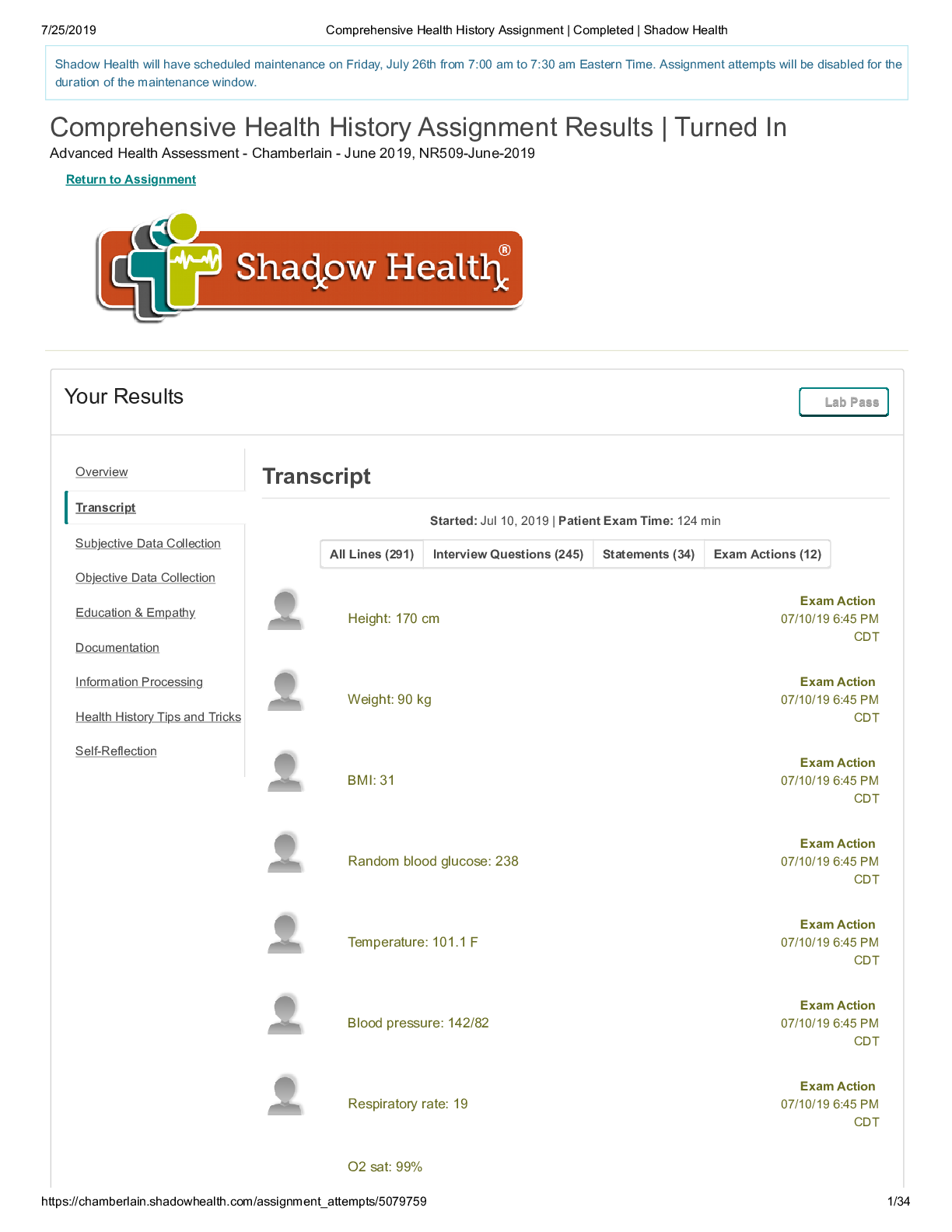
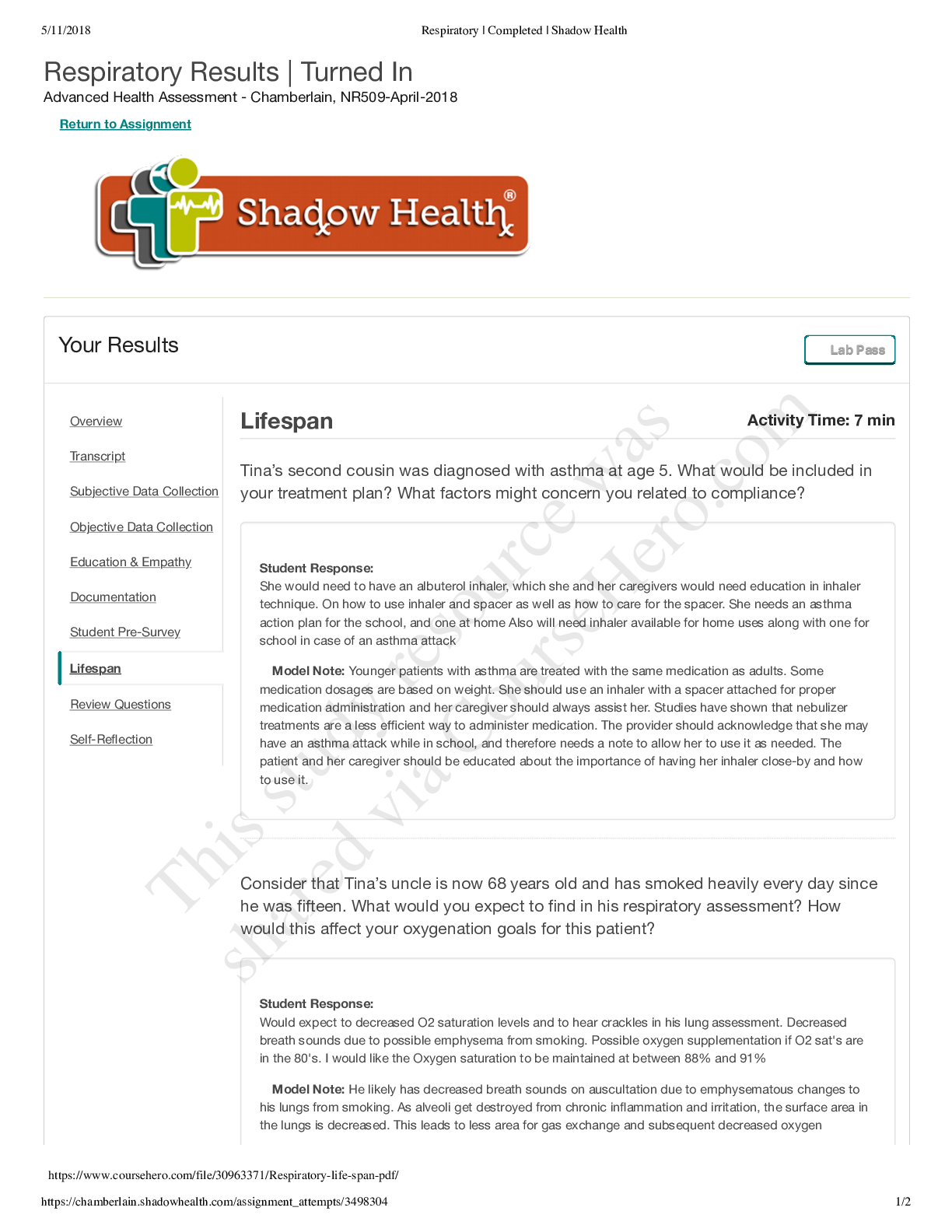

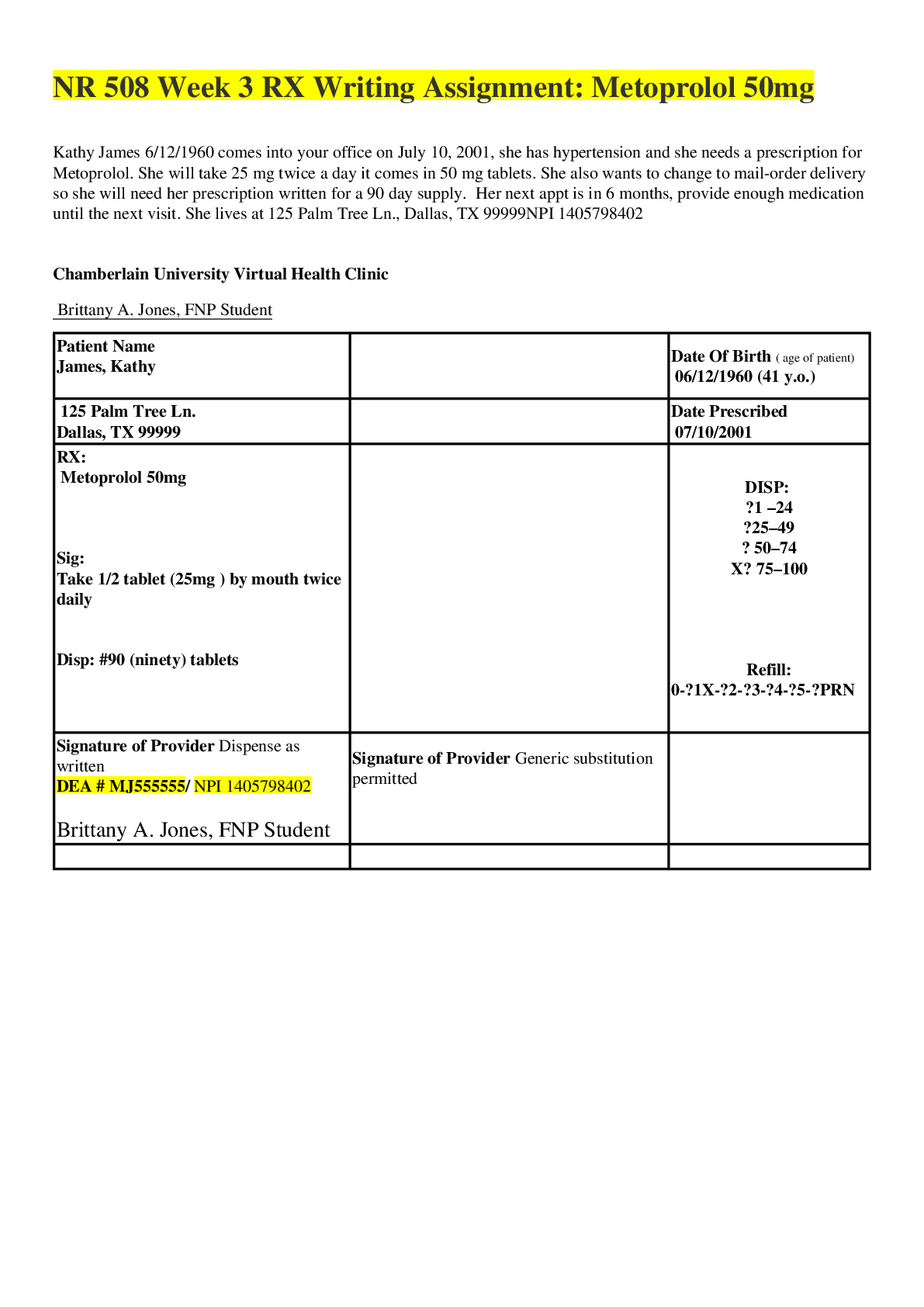
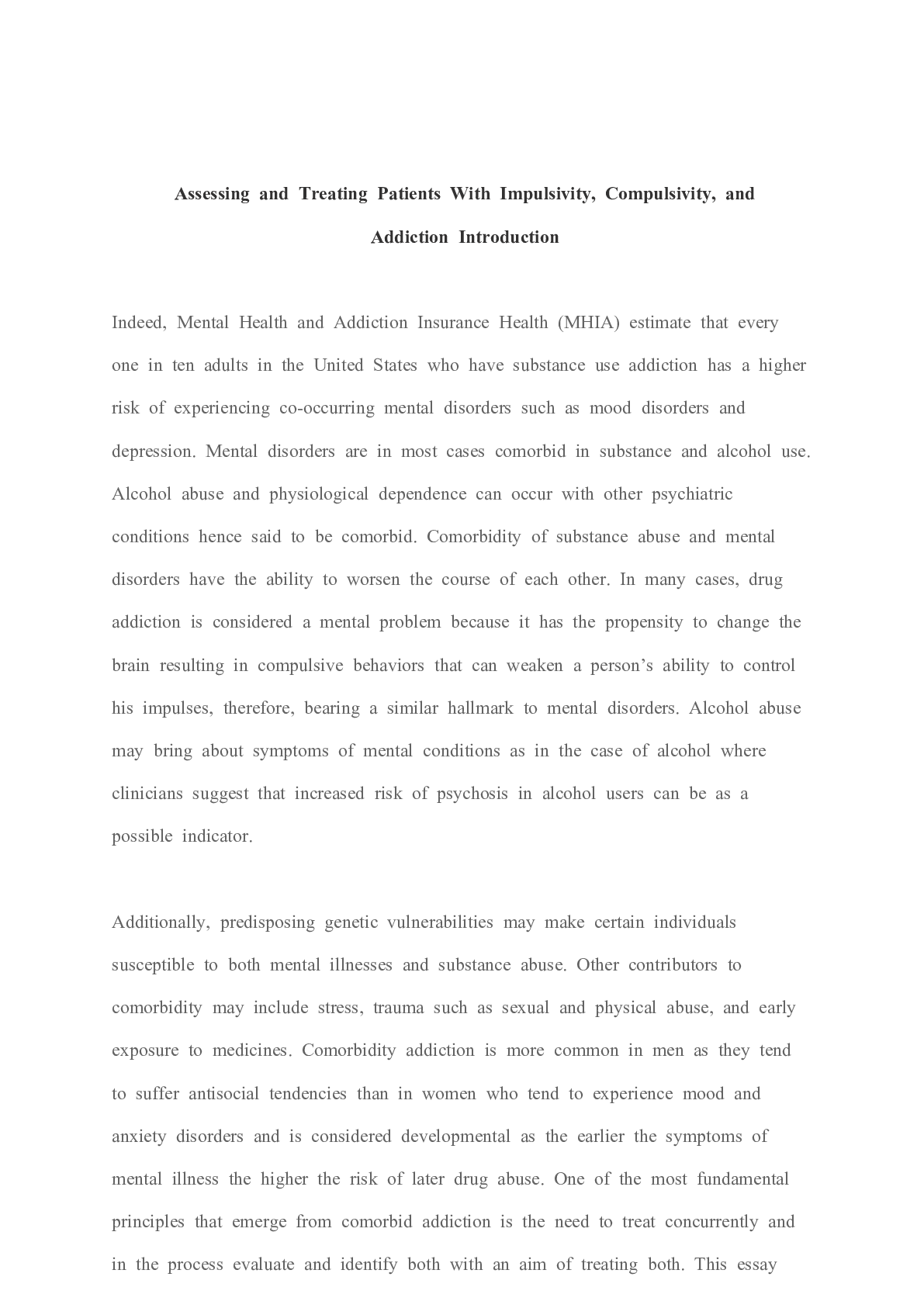


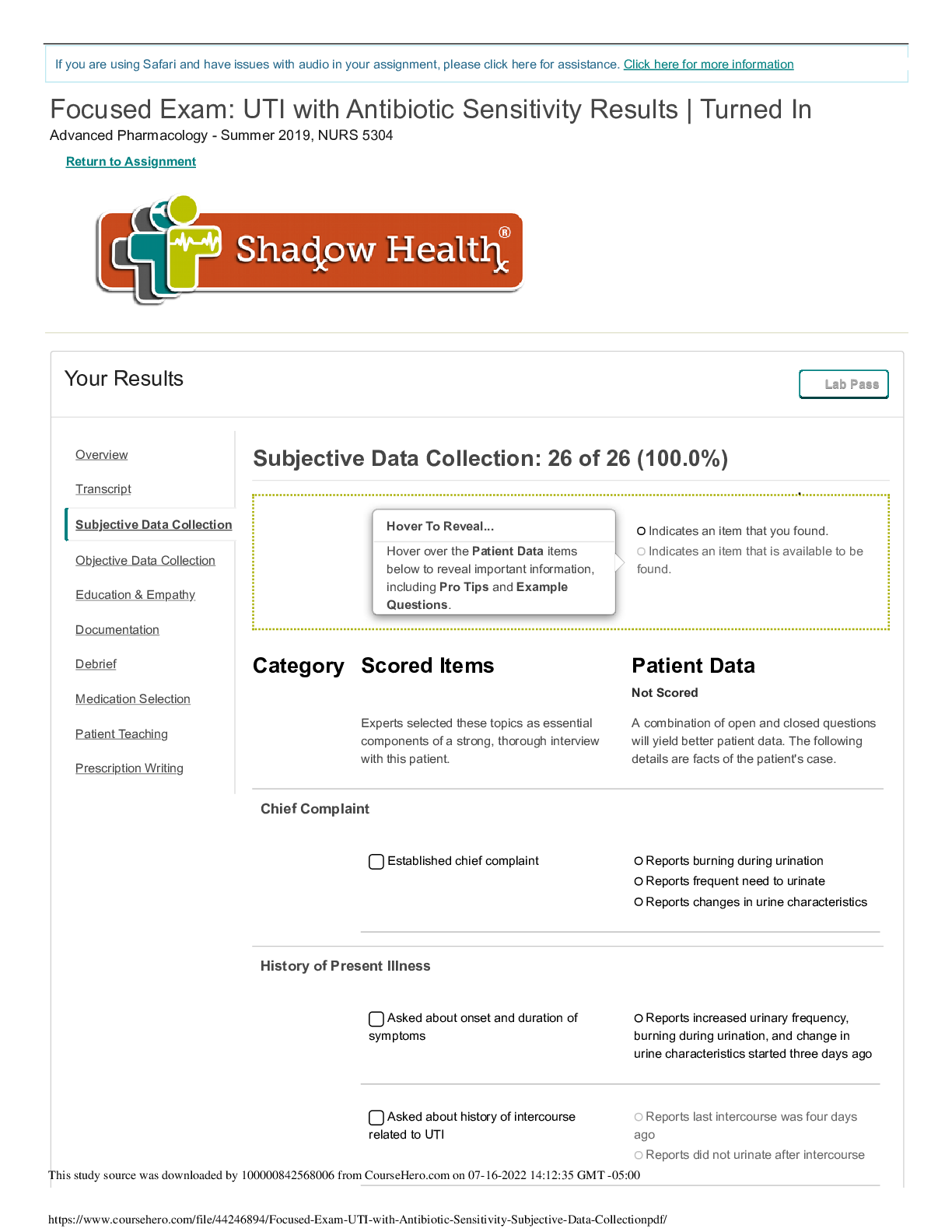
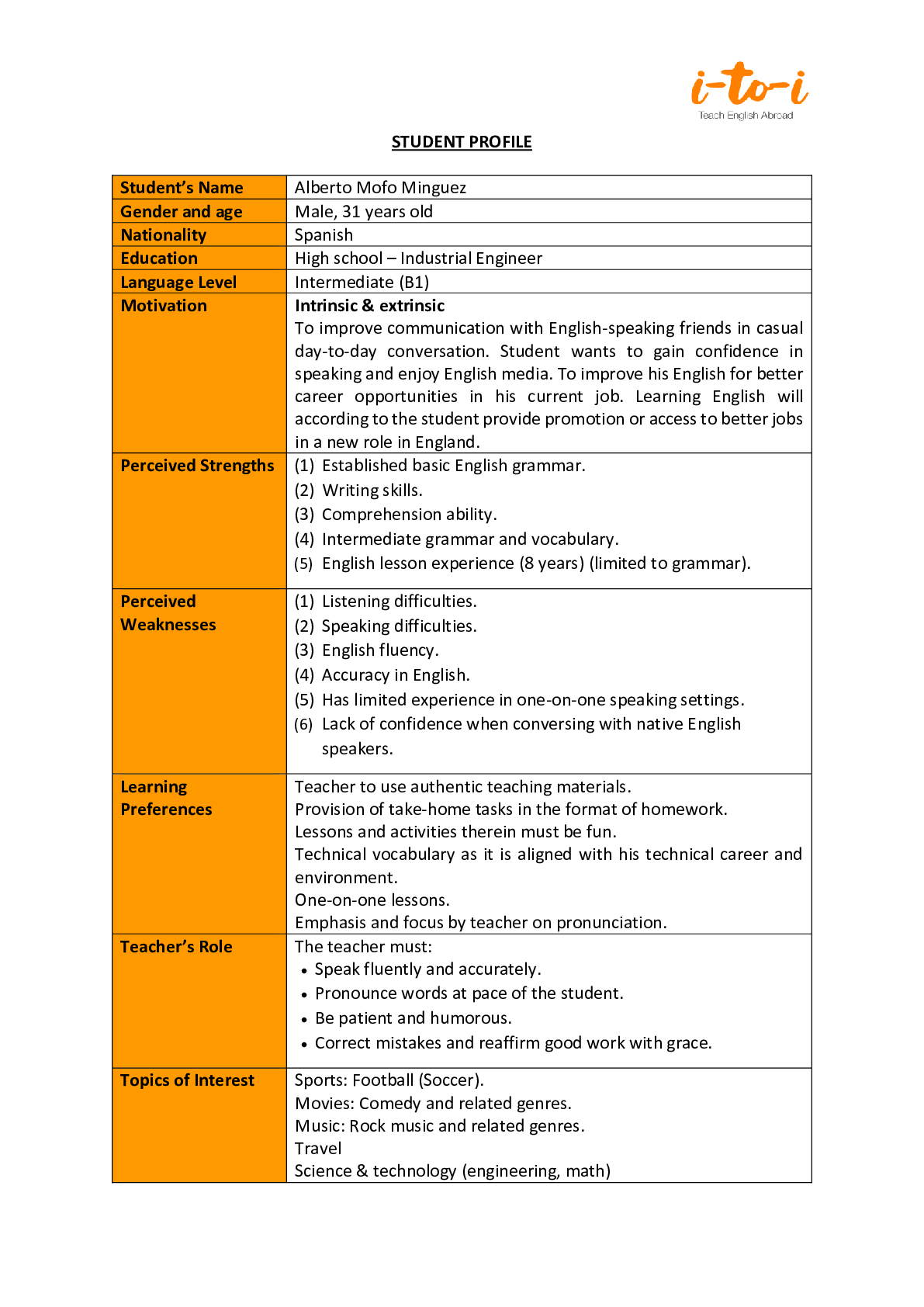
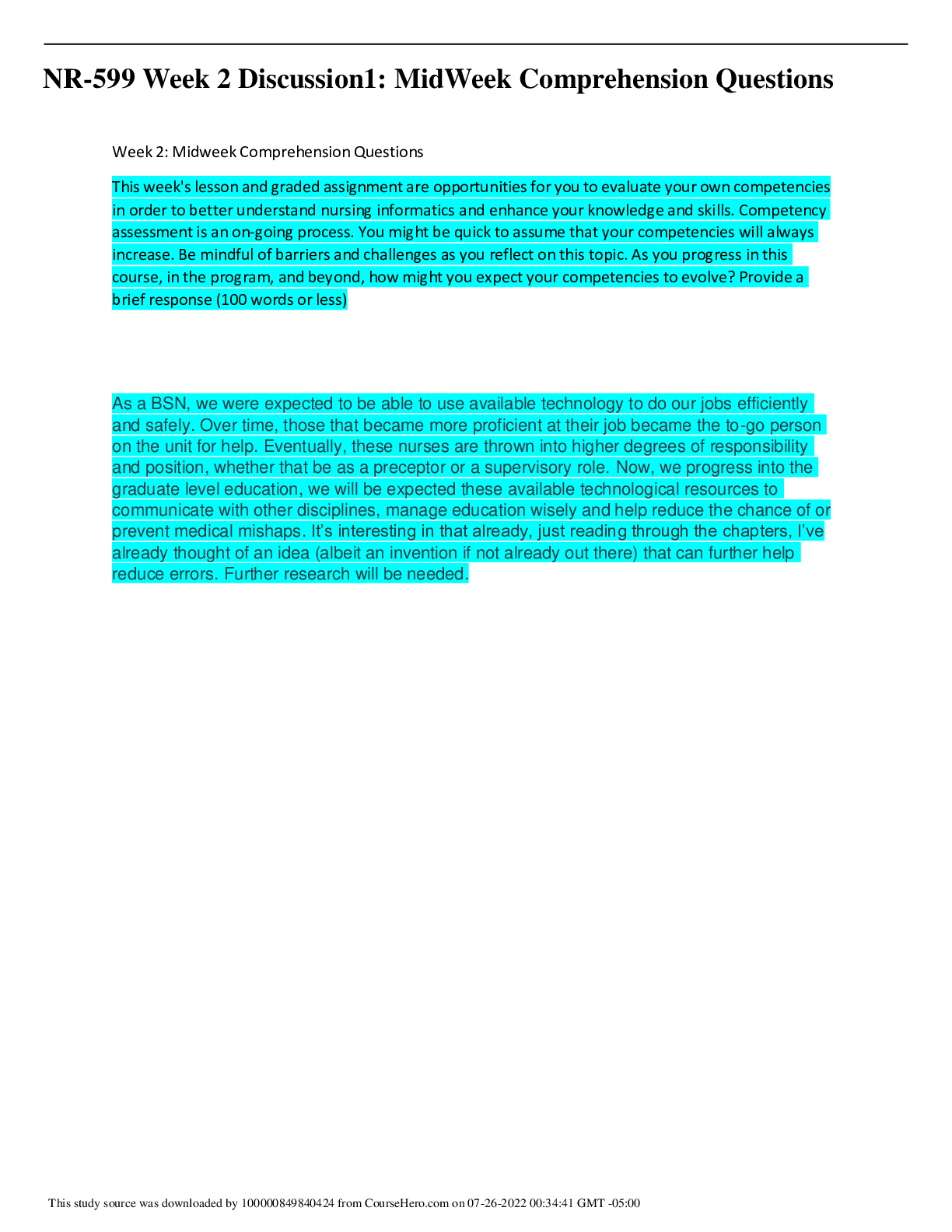
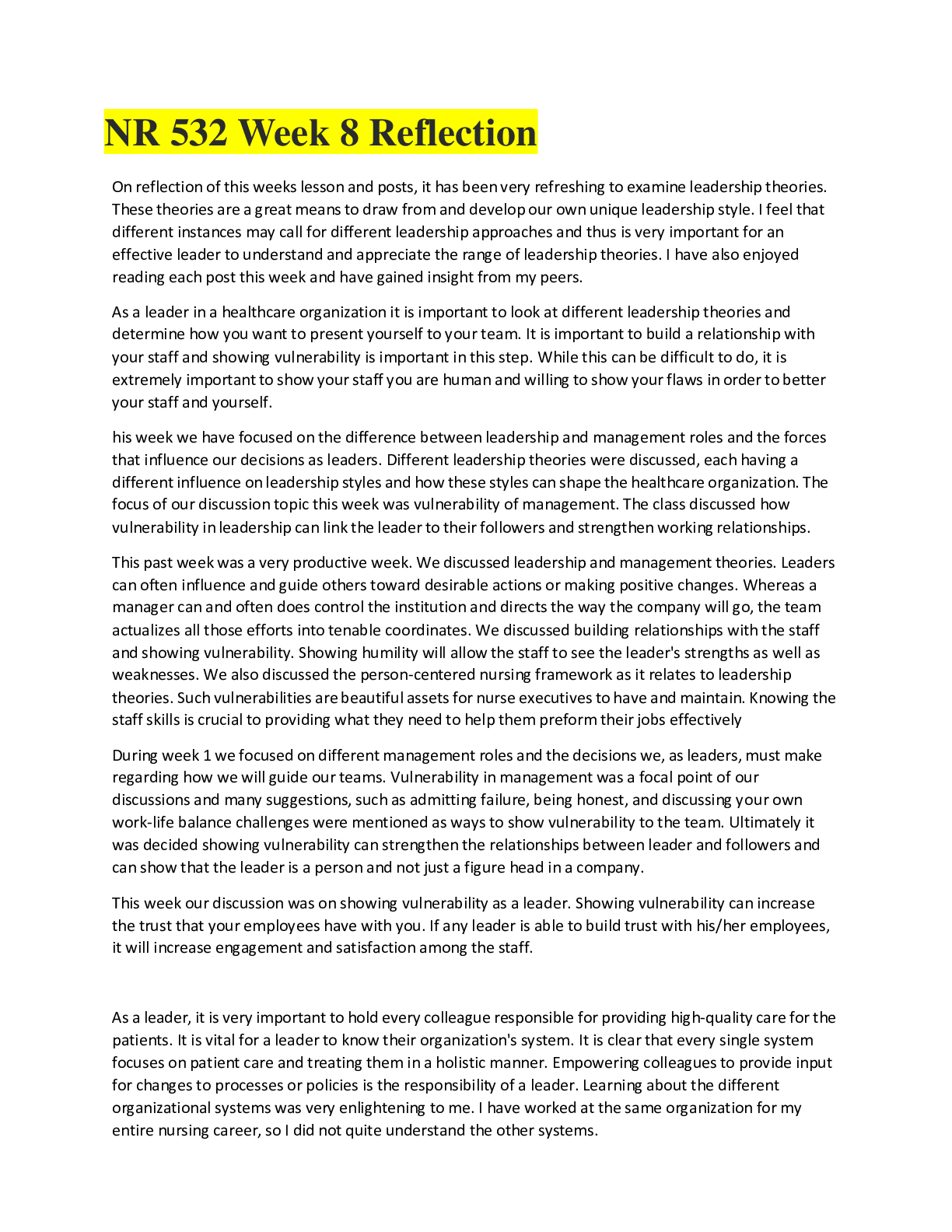
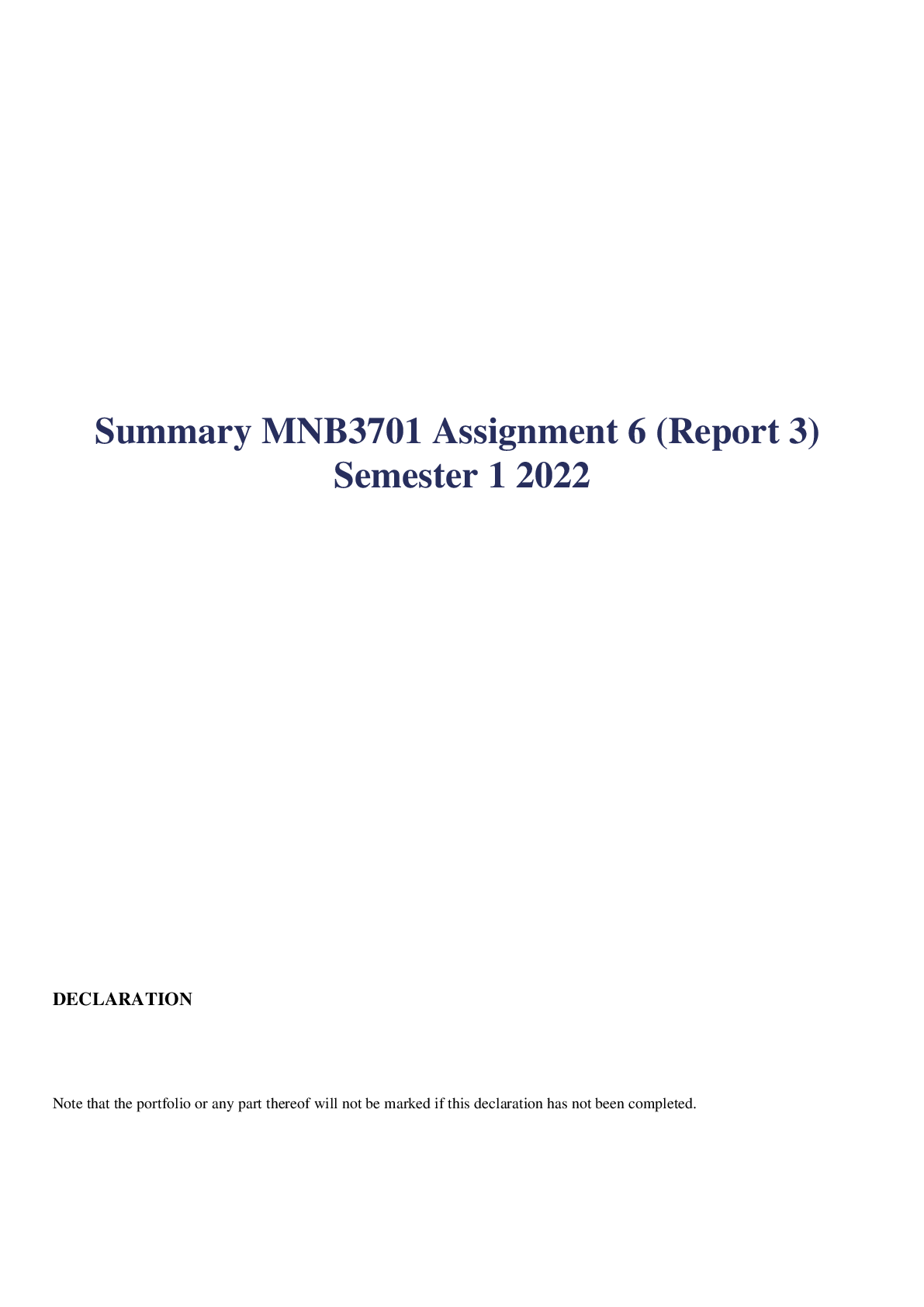
.png)

